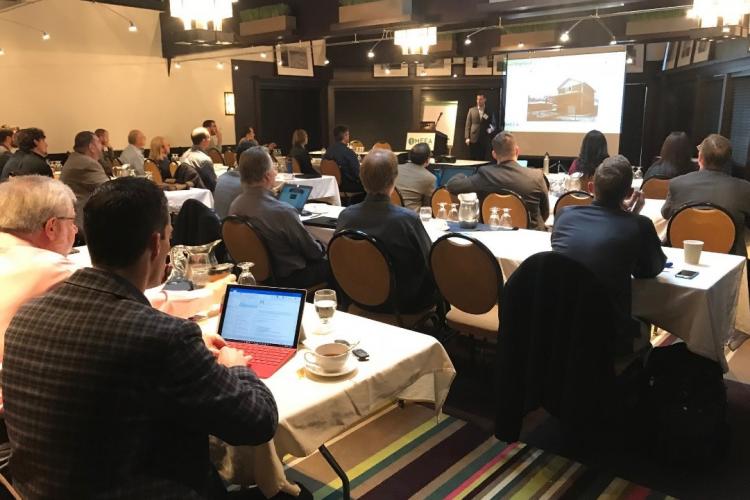
Building efficiency experts from around the Midwest convened in Ann Arbor, MI on November 15-16 for the 8th Annual Midwest Building Energy Codes Conference. This was the first time this conference was hosted in Michigan, which helped MEEA and attendees understand the unique challenges to the Michigan building community and provided critical local perspectives to better inform future building energy code policy. In past years, MEEA had the opportunity to host this conference and learn from local groups in Ohio, Minnesota, Missouri, Indiana, Kentucky and Illinois.
According to attendees, one of the best aspects about this conference is the opportunity to engage with and learn from a diverse mix of professionals in the building efficiency space. This year, conference-goers represented 11 states and a broad cross-section of the building efficiency industry, including builders, code officials, state energy offices, energy raters, policy experts, national labs and utility representatives.
Conference Overview
In addition to the unparalleled networking opportunities, this two-day conference was packed with timely and technical information. With the recent development of the 2018 IECC, emerging code compliance studies, and a goal to develop a net-zero energy code by 2030, there was plenty to discuss. Experts presented on ways to cost-effectively build to net-zero, the importance of engaging the real estate community to further building efficiency policies, advancements in building technologies and new above-code commercial and residential standards available for jurisdictions seeking to adopt a stretch code or above-code programs.
We hope attendees left with a better understanding of current building energy code policies in the Midwest and discovered new opportunities to increase building efficiency in their jurisdiction through policy advancement, workforce training, and stakeholder and consumer engagement.
Presenter Slides
-
Building High Performance Homes Quickly and Cost Effectively - Scott Sanders, Brightleaf Homes (5.46 MB) -
Shifting the Public Sector to Zero Energy - Tony Hans, CMTA Engineers (4.06 MB) -
Turning Home Performance into Value - David Heslam, Earth Advantage (5.05 MB) -
Major Changes to the 2018 IECC for Residential and Commercial Buildings - Eric Makela, Cadmus (1.71 MB) -
Adopting the 2018 IECC - Ian Blanding, MEEA (750.24 KB) -
Midwest Codes Collaboratives - Alison Lindburg, MEEA (1.21 MB) -
Building Energy Codes Program - Jeremy Williams, U.S. Dept. of Energy (3.72 MB) -
Third Party and the Energy Code - David Kaiser (464.18 KB) -
HERS Ratings: More than Just a Score - Ian Blanding, MEEA (990.61 KB) -
Kentucky Residential Compliance Study - Chris Burgess, MEEA (1.09 MB) -
Standard 90.2: The Path to Performance - Theresa Weston, DuPont Protection Solutions (1.48 MB) -
Riding the Bike to a Future Energy Codes, Washington, DC-Style - David Kaiser (2.91 MB) -
Harnessing Data to Identify the Best Opportunities in Existing Buildings - Eric Wilson, NREL (3.53 MB) -
Using an Aerosol Sealant to Reduce Multifamily Envelope Leakage - Russ Landry, Center for Energy and Environment (3.37 MB)
The Conference in Photos
Day 1
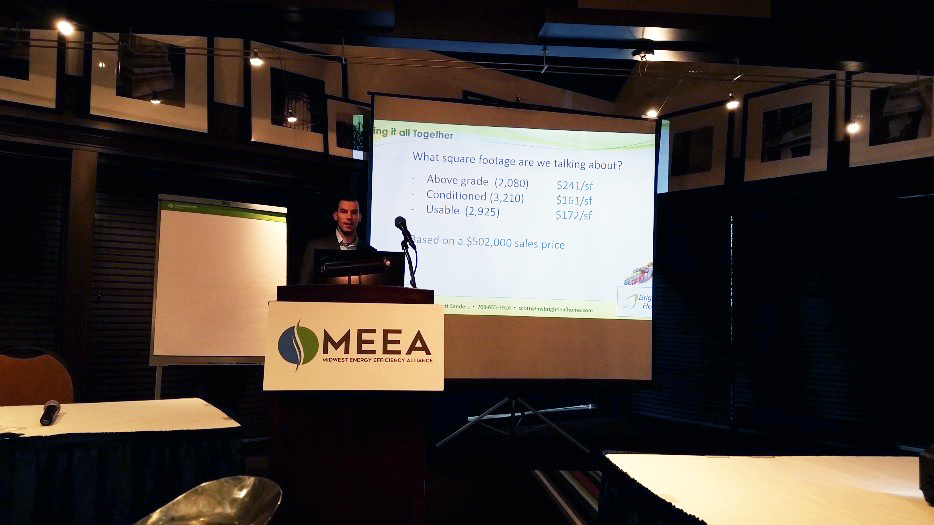
Scott Sanders, Principle at Brightleaf Homes, makes the case that with the right team and proper planning, builders can deliver Zero Energy Ready Homes cost-effectively and at the market rate.
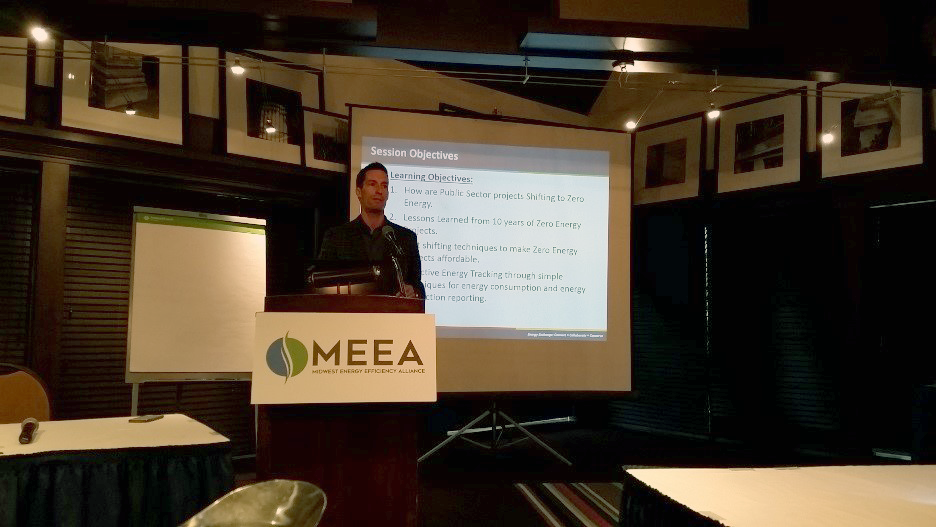
Tony Hans, Principle and Vice President at CMTA, provides examples on how his firm builds cost-effective net-zero public commercial buildings, helping the public sector make sound investments during new construction.
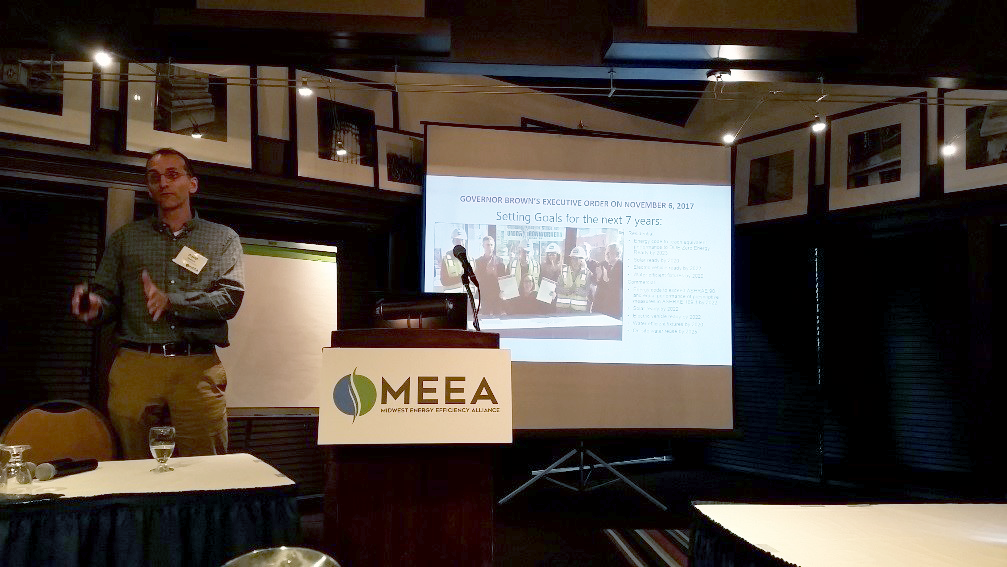
According to David Heslam, Executive Director of Earth Advantage, the real-estate and builder community were critical to passing the Home Energy Score Ordinance in Portland, OR. This ordinance will take effect on January 1, 2018, requiring sellers of single-family homes disclose a home energy report and score at the time of listing.
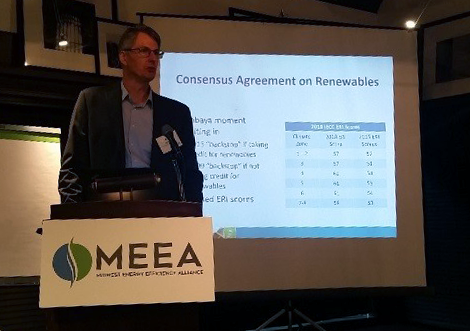
Attendees learned about the changes made to the latest model energy code, the 2018 IECC. The model code now provides a code compliance pathway when installing solar panels on residential homes, according to Eric Makela, Senior Associate with Cadmus Group.
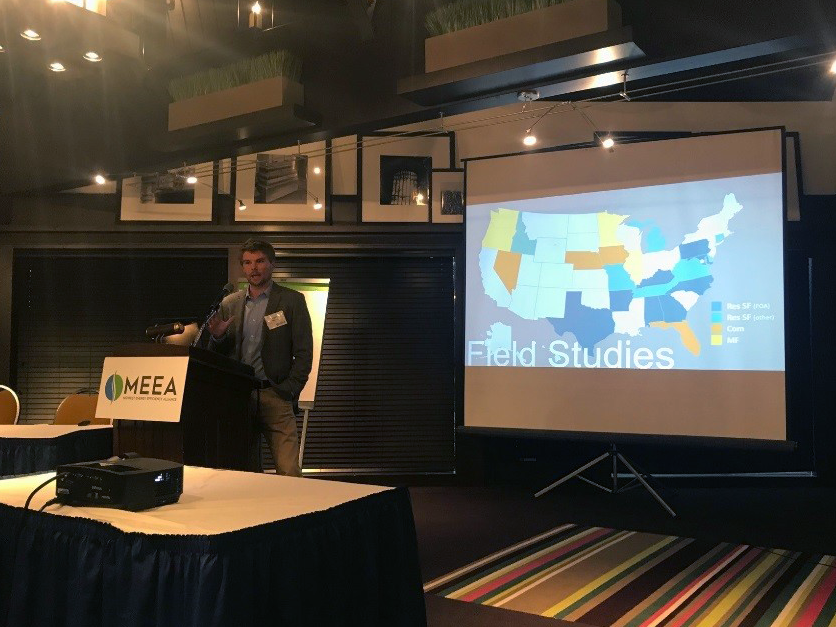
Jeremy Williams, Project Manager for US DOE, provides an update on the current residential, multi-family and commercial compliance studies being conducted around the US.
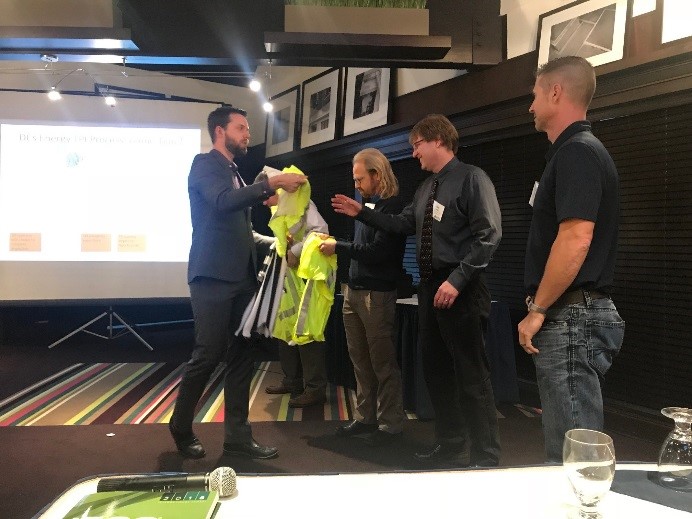
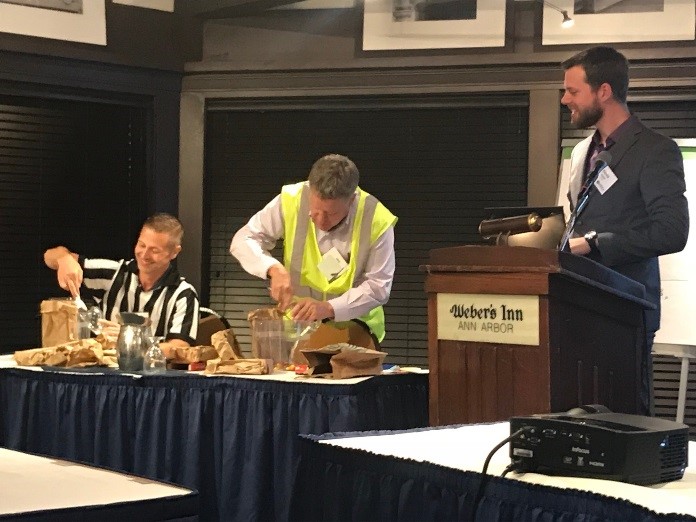
To finish out the first day, David Kaiser, Green Plan Reviewer from Washington D.C., leads our volunteers through a third-party energy code compliance simulation.
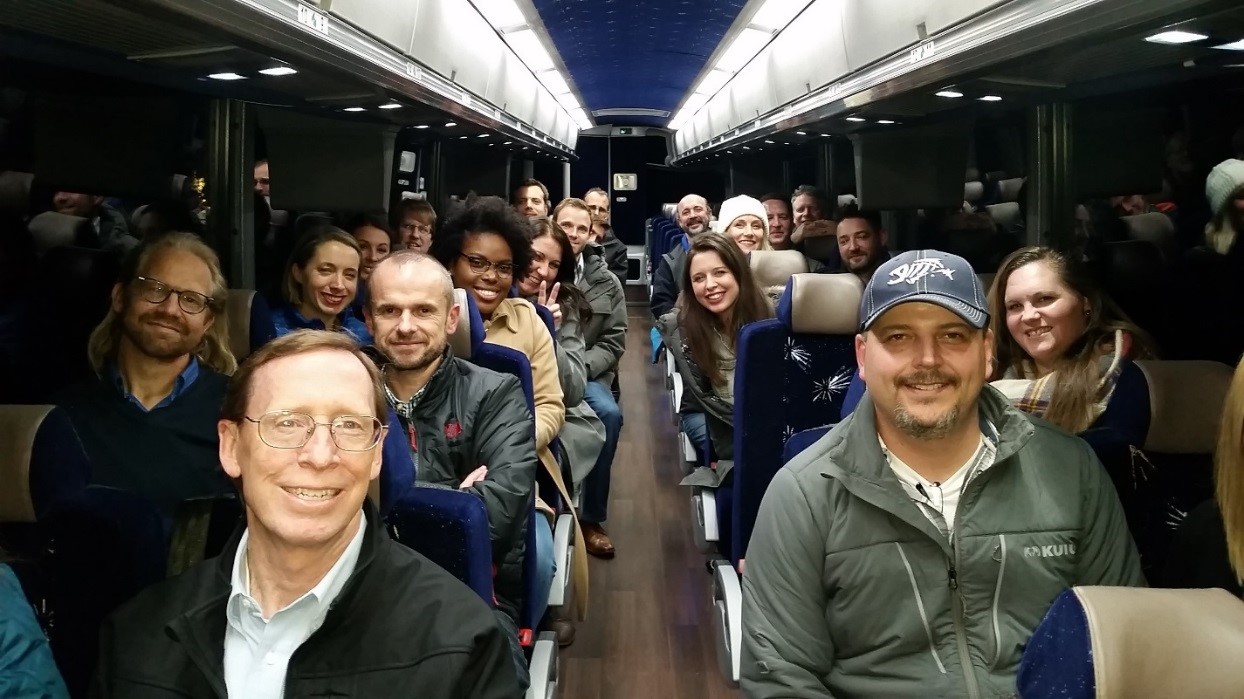
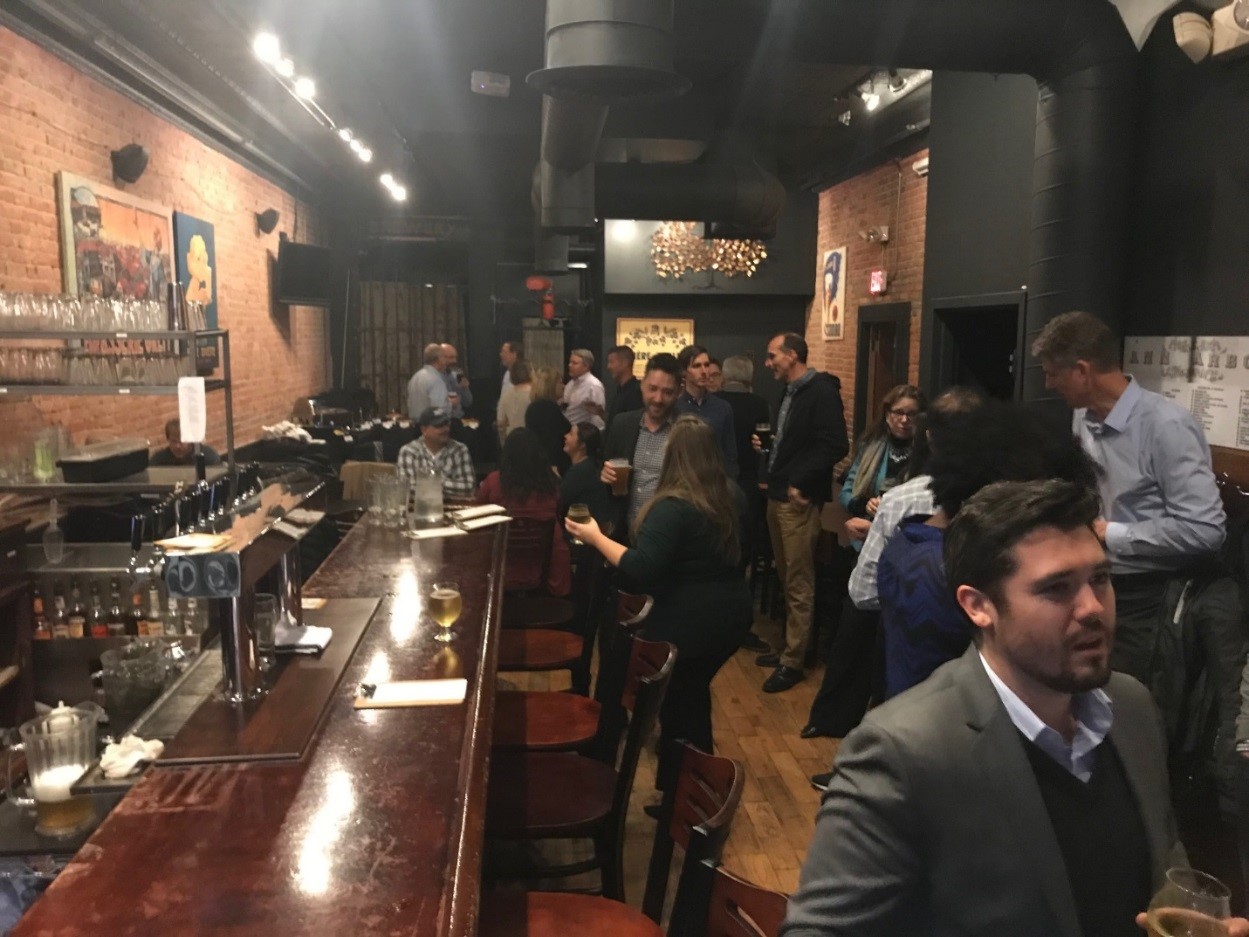
After the first day, we took a bus to Arbor Brewing Company for some great food, beer and superb conversation.
Day 2
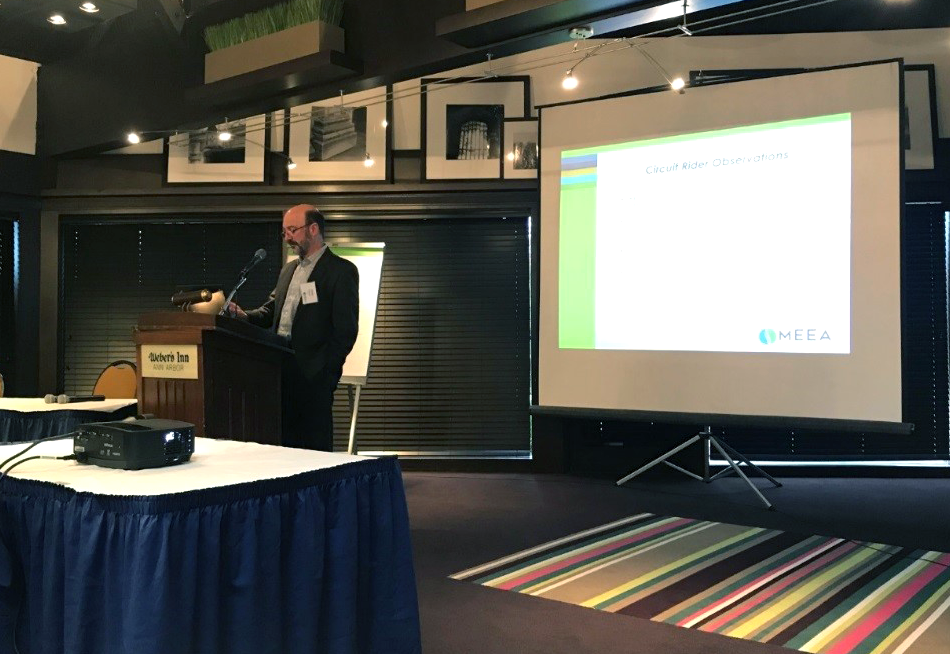
Chris Burgess, MEEA’s Technical Manager for Codes Compliance, kicks off day two with an update on the DOE Residential Field Study in Kentucky. According to a preliminary MEEA analysis, the project reduced energy use in single-family homes by over 18% as a result of improved energy code compliance.
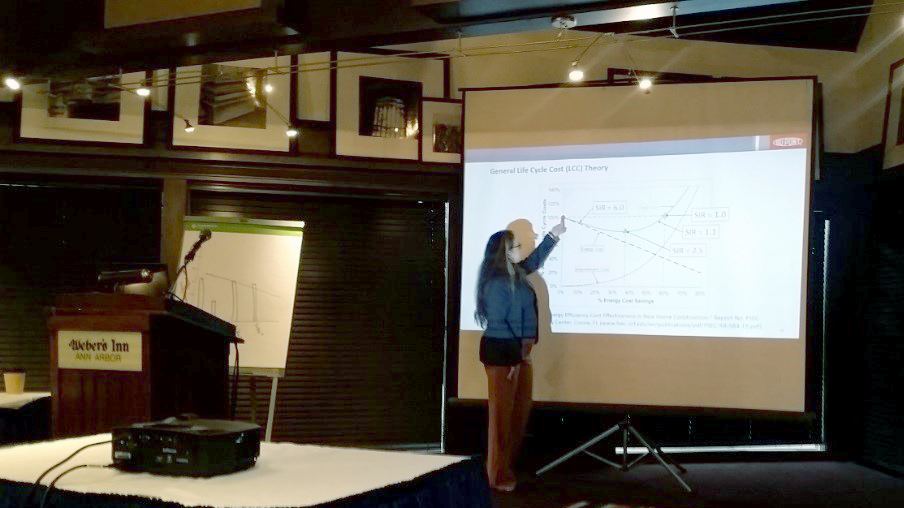
Theresa Weston, ASHRAE Residential Building Committee Chair, provides an update on the development process of ASHRAE Standard 90.2-2007R – Energy-Efficient Design of Low-Rise Buildings. This standard is based on a performance path and is projected to be at least 50% more efficient than the 2006 IECC. The committee is currently reviewing the public comments that were submitted in December 2016.

To wrap up the conference, Eric Wilson, NREL Research Engineer, discusses one of NREL’s latest research projects, RESstock. RESstock utilizes existing databases to determine which efficiency retrofit measures provide the greatest opportunity for states, municipalities and utilities to drive cost-effective energy savings in existing residential units.